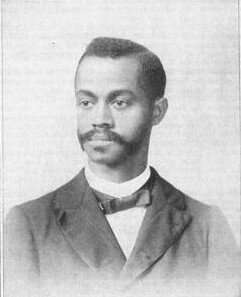Credit: Public Domain
A pair of Queen Mary University of London psychologists are reminding modern scholars of the work conducted by an accomplished pioneer of comparative animal intelligence study: Charles Henry Turner, a Black biologist who conducted animal cognition studies in the late 1800s and early 1900s. Hiruni Samadi Galpayage Dona and Lars Chittka have published a Perspective piece in the journal Science outlining the work done by Turner and the obstacles that stood in the way of his research.
As Samadi Galpayage Dona and Chittka note, Turner was born in 1867 in Cincinnati, Ohio just two years after the end of the Civil War. He was the first Black man to receive a graduate degree at the University of Cincinnati. Unlike his college peers, however, he was not able to find employment at a research facility due to his race. Instead, he was hired to teach Black high school children.
Undaunted by his prospects, Turner chose to conduct research on animal cognition independently. At the time, the prevailing wisdom was that animals were not capable of decision-making or conscious thought. Turner thought these beliefs were unfounded. He began his work by extending research he had done in college on the comparative anatomy of bird brains and reptiles. He wrote two papers describing experiments he had conducted and published both in the journal Science—this was in 1892, nearly a century before white researchers published similar papers describing similar conclusions.
Turner also carried out experiments with spiders spinning webs and found evidence of that they changed their webs to account for the environment in which they were built, proof that an arachnid could make such decisions. He later studied ants and found differences in learning curves. When studying bees, he found they used memory landmarks to make nest building decisions. And later, he found that wasps lugging prey back to a nest used information they learned along the way to get around obstacles, rather than trial-and-error.
Turner continued his research for most of the rest of his life, and found many instances of animal cognition that ran contrary to popular opinion. Sadly, his accomplishments were either overlooked or ignored by the established scientific community. And because of that, even today, he has not been properly recognized for his work—a sad commentary on the state of racism in the sciences. Samadi Galpayage Dona and Chittka suggest that the science community has work to do to recognize the work by people of all races.
More information: Hiruni Samadi Galpayage Dona et al. Charles H. Turner, pioneer in animal cognition, Science (2020). DOI: 10.1126/science.abd8754
Journal information: Science
© 2020 Science X Network























